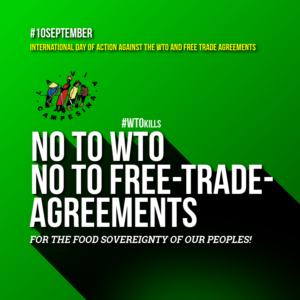How we talk about the climate crisis matters. Learn science-based tactics to starting the conversation with your family and friends.
As we approach the upcoming holiday season, many of us will sit around the dinner table with our family and friends and discuss (or maybe debate) important issues from healthcare to immigration to women’s rights. However, a recent study found that not nearly enough Americans discuss another critical issue – the climate crisis – on a regular basis. A survey by Yale and George Mason University researchers found that only 19 percent of Americans hear someone they know talking about the climate crisis at least once a month.
Some issues are too urgent not to discuss in everyday life – and the climate crisis is one of them. Talking about it and forcing climate into the political conversation is the only way we will enact change.
However, how we talk about climate change, especially with people who deny or question its reality, matters. So how should we talk about the climate crisis with our family and friends who might not consider it a priority or haven’t taken action?
In this blog post, we share science-based tactics that you can use when discussing climate change with the important people in your life – tactics that can help persuade others to feel hopeful about climate solutions and ultimately take climate action. Let’s jump right in.
KNOWLEDGE MATTERS
If you’re reading this blog post, you may assume that most people understand the urgency of what’s happening to our planet. But one study investigated how much people really know about the climate crisis and how knowledge influences the messages that persuade people to take action.
Researchers at the University of Texas-Austin assigned 330 participants to one of four groups, each with a different persuasive climate message:
- A financial self-interest message (how clean energy solutions can increase jobs and improve the economy).
- A moral message.
- A mixed message that combined self-interest and morality.
- A control group with no persuasive message.
Then, participants read an advertisement with one of the four messages and answered questions about how likely they were to support climate advocacy efforts.
The results were surprising. The findings showed that how much we understand climate change makes a big difference in how likely we are to take action. Researchers also found that certain climate messages are more effective than others. Participants who were knowledgeable about climate change and heard the financial self-interest message were more likely to talk about climate change andengage in advocacy actions like signing a petition. On the other hand, participants who knew little about climate change weren’t persuaded by any of the four climate messages.
These findings are a snapshot of the full study, but they tell us a few things. First, people need to understand what’s happening to our planet before they’re ready to do something about it. Second, explaining to your friends and family how switching from dirty fossil fuels to clean energy can benefit their wallets appears to increase the likelihood that they’ll take climate action.
WHEN IN DOUBT, USE HOPE
Another study investigated how different climate messages influence feelings of hope. Like the first study, Ohio University researchers randomly assigned 245 participants to one of four messages:
- A future without climate change is possible.
- A future without climate change is important.
- A future without climate change will help meet one’s personal goals.
- A future without climate change will create a better future.
Then, the researchers measured how hopeful each message made the participants feel.
Contrary to what the researchers predicted, the results showed that only the last message about protecting our climate to create a better future increased feelings of hope. And when you think about it, it makes sense. We all want a future without more intense and frequent natural disasters, melting glaciers, and rising sea levels. We know protecting our climate and our environment will create a better, safer, more sustainable future for our children – and that makes us feel good.
The researchers also looked at how hopeful feelings predicted interest in protecting our climate. The findings showed that greater hopefulness led to a stronger interest in wanting to keep our planet safe. Again, not surprising. Given the human tendency to turn away from things that cause fear, people are more likely to hear and embrace messages that result in hopefulness.
WHAT TO DO NEXT
So when you’re talking about the climate crisis with the people in your life, don’t only focus on the negative. There’s plenty of #ClimateHope stories to tell – from the climate action that’s being taken all around the world to unexpected nations embracing renewable energy to the thousands of new solar jobs that are created each year.
Not sure where to start? Check out this blog post with 99 reasons to keep fighting for our future. Then, make sure to sign up for our activist list to stay updated with ways to take action and get involved with Climate Reality’s work to create a better tomorrow for our planet (see what we did there?).













 September 10, The International Day of Action against WTO and FTAs
September 10, The International Day of Action against WTO and FTAs













